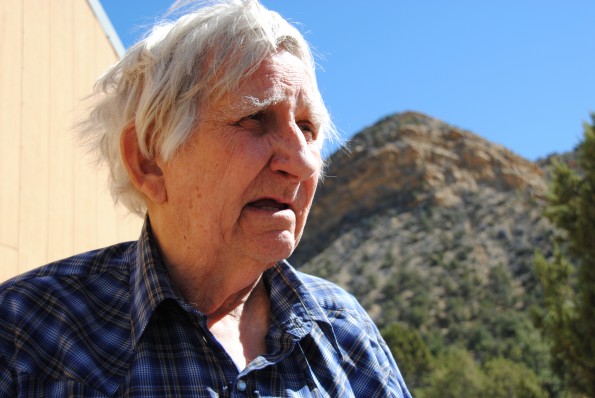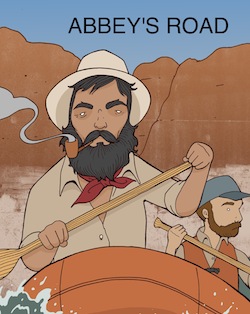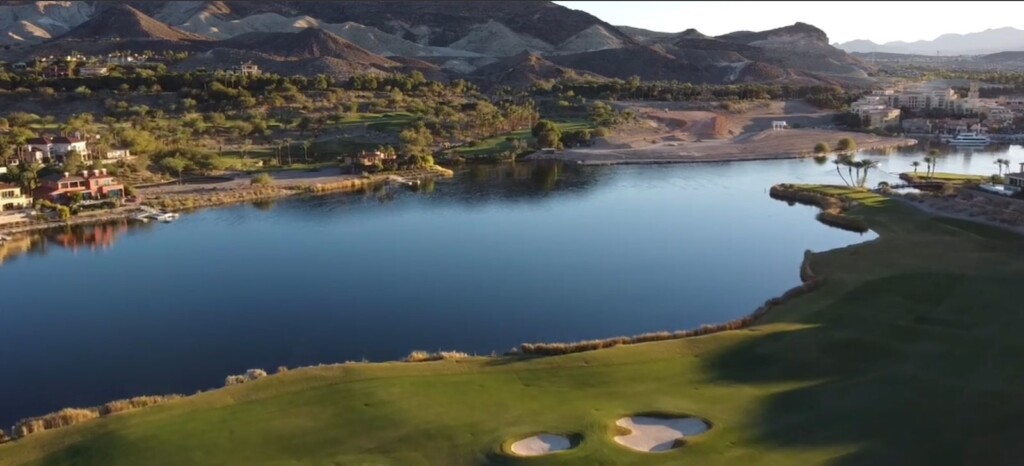
Ken Sleight is loved by many and obviously loves people. Yet, according to Sleight, people and the industrialization of the West are the big problems. “Don’t get me wrong, there are a lot of damn good people coming in here. But how many damn good people can you put up with?”
The day after the screening I drove to Pack Creek Ranch and met Sleight in his Quonset hut office. His hair is disheveled, hearing fading, but his posture, demeanor and innocence are still that of a kid who finds pleasure in playing outside. “I’m just a youngster,” he says at age 83. Sleight tells me about people he’s known, his disputes with Cal Black, Jim Matheson and park rangers. The stories of his life as a farmer and grain cutter, his later work with the Navajo and Hopi, plus his various political positions would make a great book.
Edward Abbey wrote his final book The Fool’s Progress in a small cabin 100 feet from Sleight’s office.“ He used to be just right over there. ”The polygamist, jack-Mormon anarchist character Seldom Seen Smith is based on Sleight. In reality, in 1975 when the book was published, Sleight was a Barry Goldwater Republican and jack-mormon, but not an anarchist nor polygamist.
Over the years his real character would change and more closely resemble his fictional character. “I campaigned for Goldwater, and he was a really good man. Goldwater loved running the rivers, and had a camp off the Grand Canyon, but he later admitted that Glen Canyon Dam was a mistake.”
Sleight says that after working with the Navajo he decided Democrats demonstrated greater compassion for the poor, so he changed parties. But politics stop at the river’s edge. “Once the boat is in the water, whether you are ultra-conservative or extremely liberal, that all goes away. You’re not talking that much about politics in the the beautiful canyon. The geology and the wildlife and surroundings, that is more real.” Sleight managed to avoid politics on his boat trips, but when it came to protecting the rivers from which he made his living, he became involved in politics and environmental protests and a proud lifetime member of Earth First! Sleight explains their reasoning for their “no compromise.” policy.
“If the environmental community compromises, they undercut everything that we have tried to do. But if you compromise halfway then you have lost. Instead of twenty wells, you have ten. Then they come back the next time, there is another ten. Pretty soon you have nothing left. You have nothing left.”
While Sleight says industrialization is the area’s biggest problem. He has sold several home lots on his Pack Creek Ranch. Physicist Stephen Hawking visited his ranch and came to a simple conclusion about the area: “In this place, you can see that the people living here are free of greed.” One hundred years from now, Sleight predicts, people will look back and either be very glad that preservation won over greed, or they might feel a mourning over what we have collectively lost.
My final question for Sleight was to describe Glen Canyon before the dam. “There was a feeling about Glen Canyon that put you a little closer to heaven.” It was a sentiment that both captured the past and laid out a vision to fight for future preservation.
Visit part one of this feature here.






